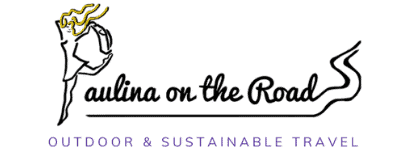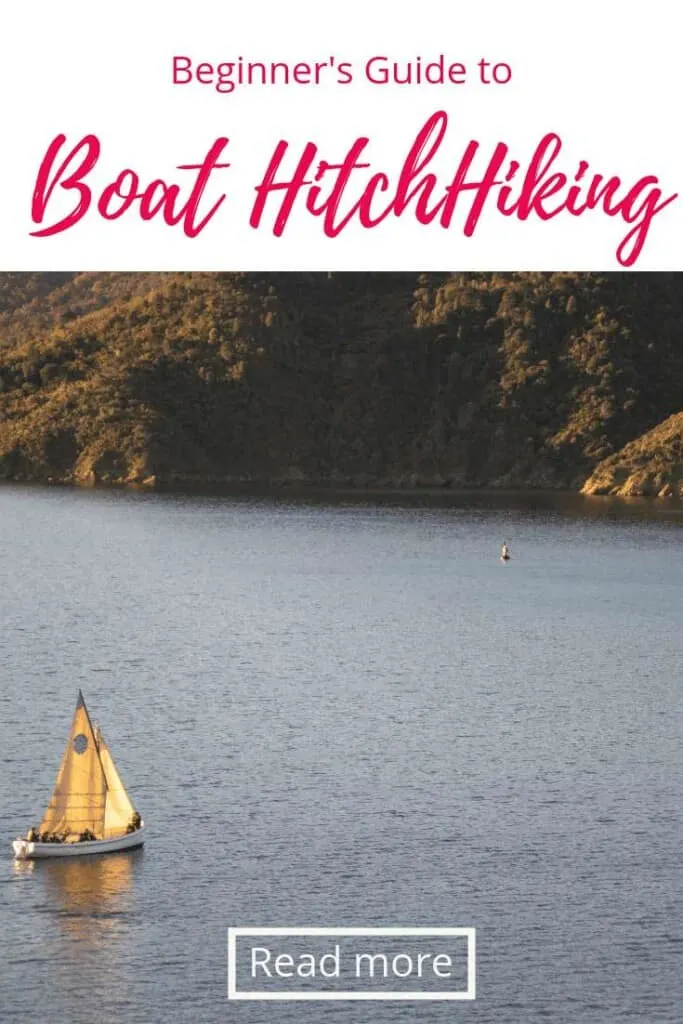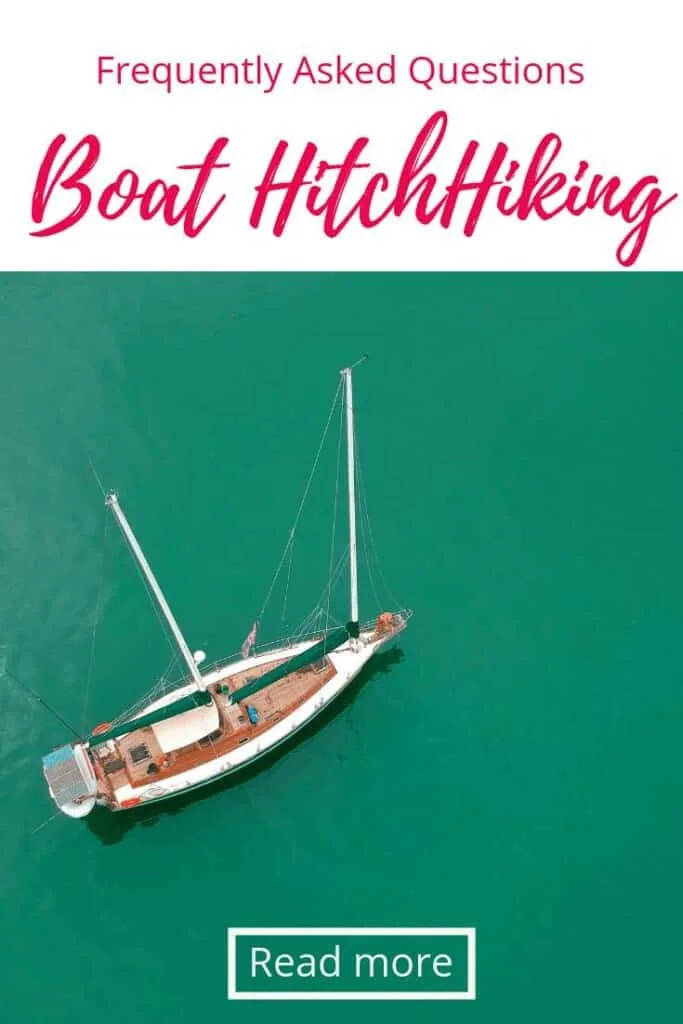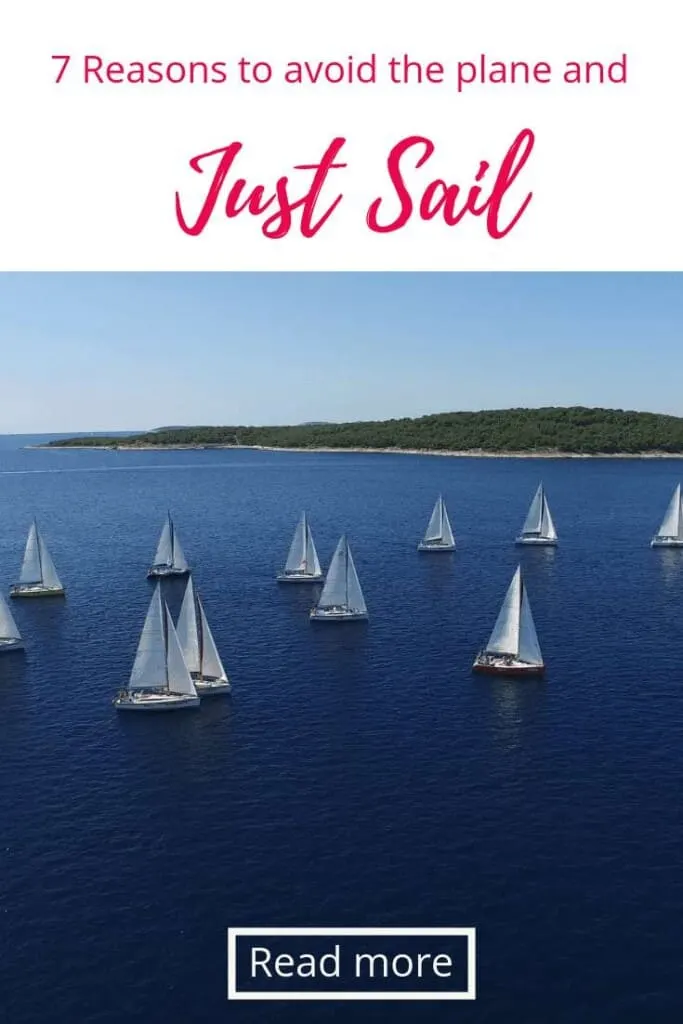Even crazy ideas like crossing the Atlantic ocean by boat hitchhiking require some preparation and organization!
Below, I listed some of the most elementary steps that you should think of before going on the adventure of a lifetime!
If you are already more advanced in your plans, you can head straight to the ABC of Boat HitchHiking or the FAQ of Boat HitchHiking.
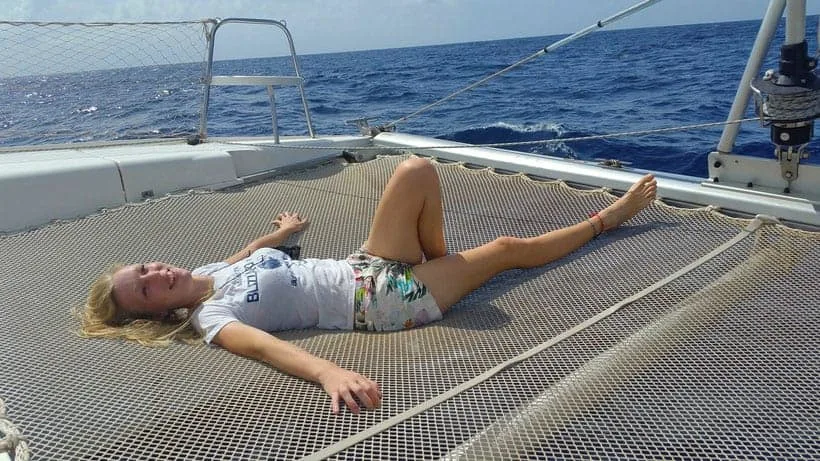
1. Get Sailing Experience
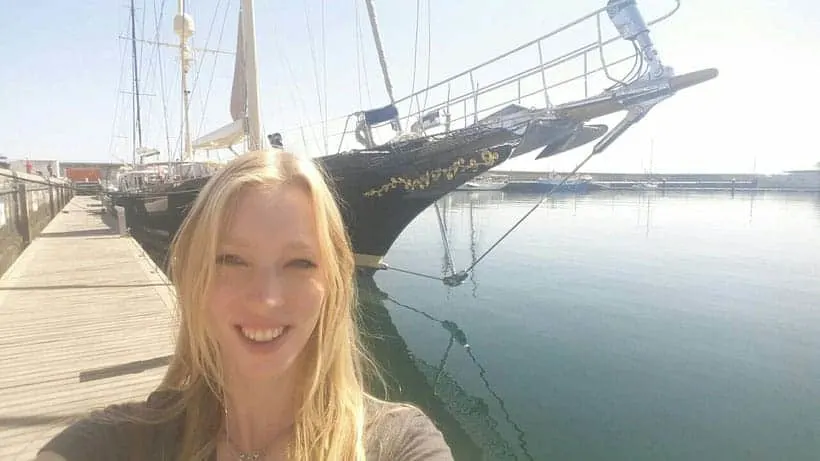
If you really want to get on a boat and are absolutely passionate about the sea, then you should get some basic sailing experience.
This might happen via your (lucky) friends owning a boat or taking sailing lessons during your holidays or weekends. I took mine after work in Tenerife at the Escuela de Deportes Nauticos in Guía de Isora. Studying the basic nautical vocabulary is a must as well.
Develop an interest in the different boat types as some name-dropping will always increase your chances.
Put yourself in the captain’s position. If you had to choose between somebody who advertises himself with “I can play guitar” or somebody who can support you during a tropical storm, who would you take on your boat?
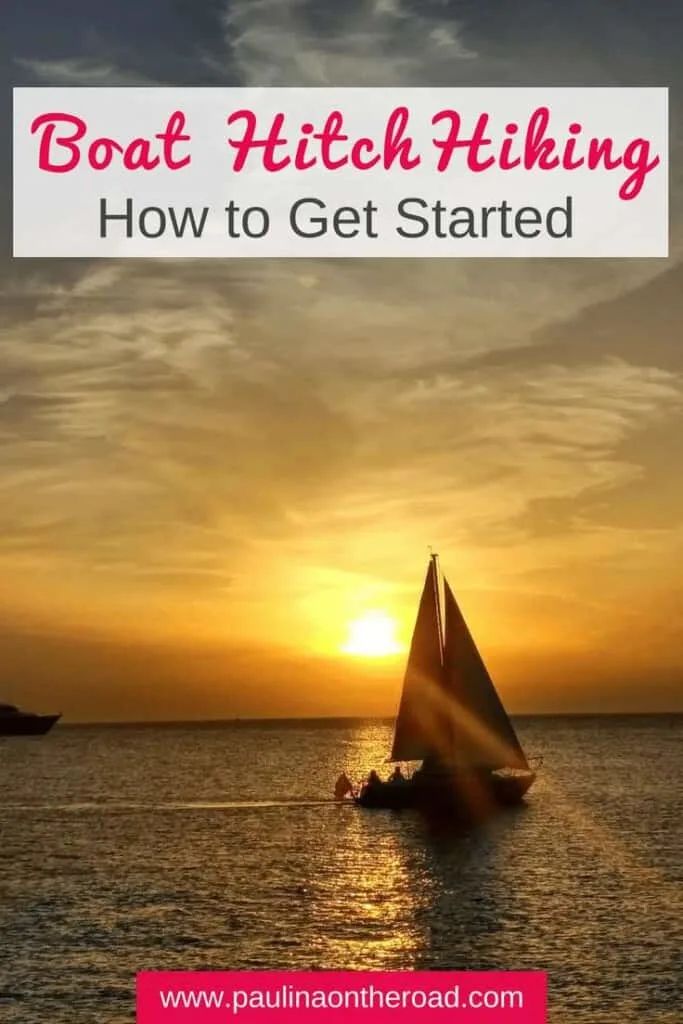
2. Sailing Seasons
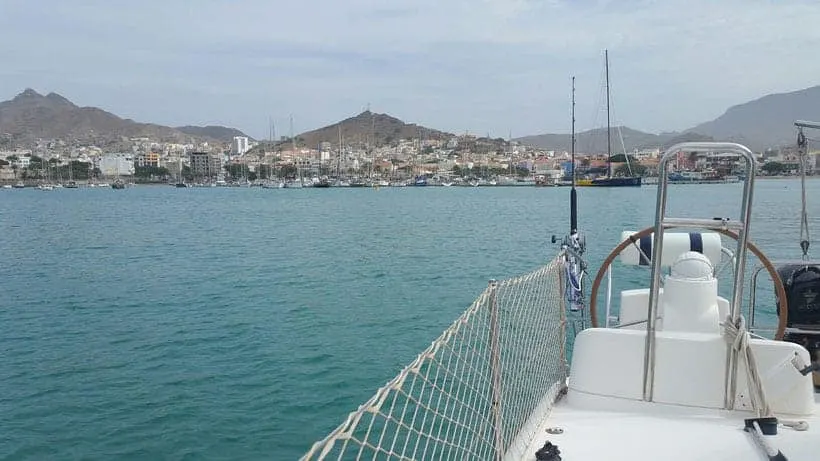
Your chances to get on a boat increase tremendously with the ability to be on the right place during the right sailing season. Many boats spend summer in the Mediterranean (Croatia, Greece, Italy, etc.) before they head to Morocco or the Canary Islands in September/October.
If you are planning to cross the Atlantic, be sure to be on the Canary Islands between October and December. Las Palmas de Gran Canaria and Santa Cruz de Tenerife are the places to be.
That is the time when the large majority gets prepared for the crossing. The winter months are usually spent in the Caribbean.
Also Lanzarote is an option in September-December since it is the incoming harbor for boats arriving from the Mediterranean.
3. Regattas
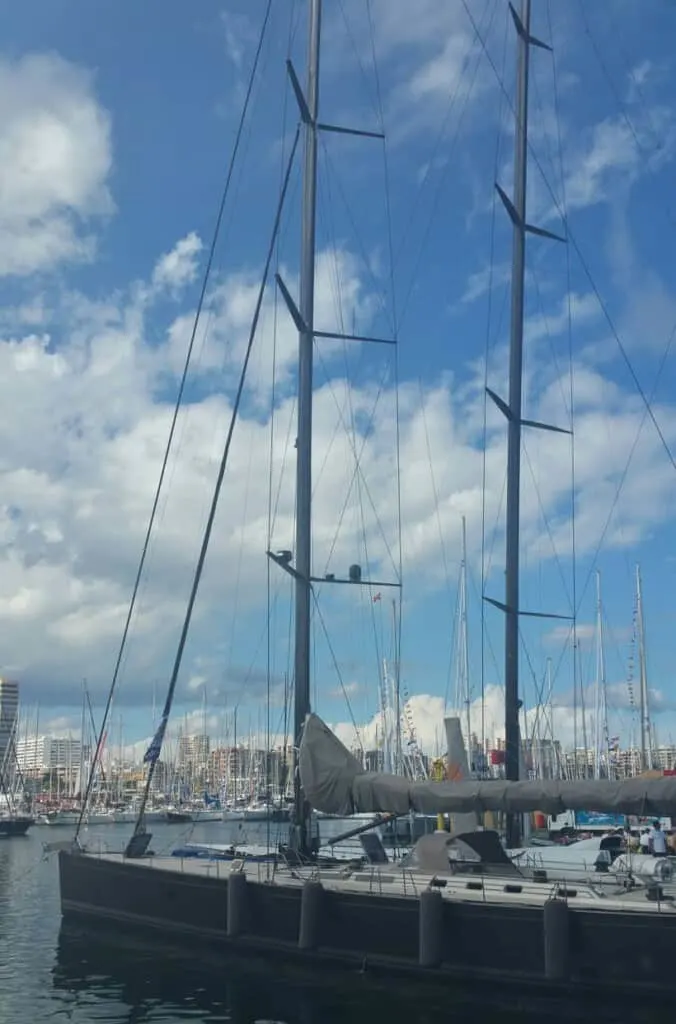
Check online the schedules of the big regattas and from which harbor they depart.
Contact the participants in advance (at least one-two months in advance) by email, asking whether they are looking for crew or not. You might also straightly get in contact with the organizers of the boat race.
The Atlantic Rally for Cruisers (ARC) is one of the most famous regattas of its kind. Every year, it attracts over 200 boats to sail from Las Palmas de Gran Canaria to Saint Lucia.
I heard that in 2016, more boat hitchhikers than ever tried to get on a boat during the ARC.
Finally, many of them decided to relocate to Lanzarote or Tenerife in order to increase their chances. Additionally, the participation fees for the ARC soared a lot, and many captains are trying to compensate them by taking crew on boat.
Make sure you also check out smaller regattas like the Cornell Sailing.
4. Boat HitchHiking Websites
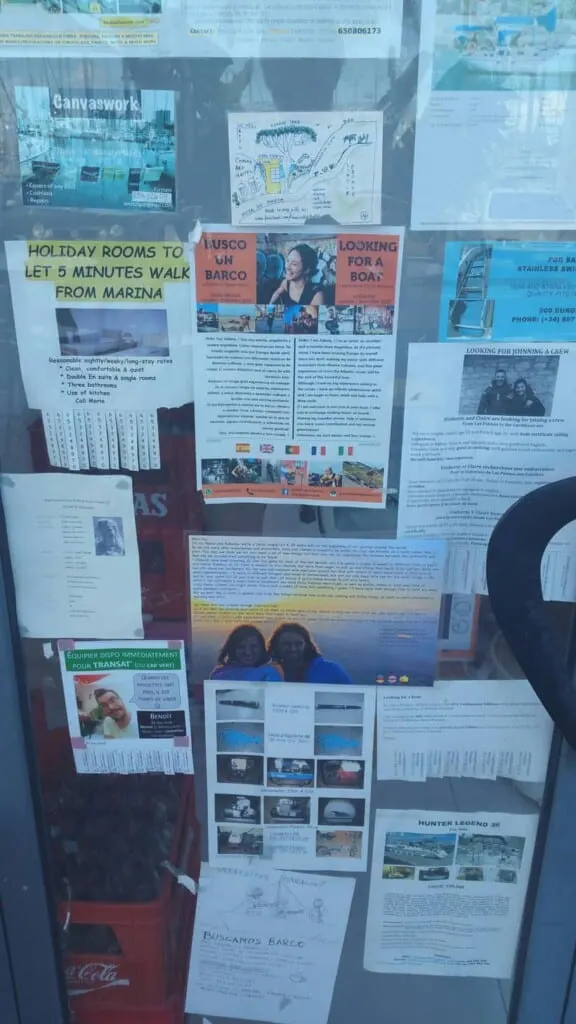
Set up your profile with all your sailing experience on every webpage on hitchhiking you might find! Since captains are looking for crew weeks or even months before they sail out, you better do this in advance!
Some pages are free, others are not.
I can especially recommend:
- OceanCrewLink.com (special focus on ARC)
- Crewbay.com
- Findacrew.net
- GenteParaNavegar.com (Spanish speakers)
- TabernaDelPuerto.com (Spanish speakers)
Make sure that you check your profile regularly. Each day, I sent out emails. Although it can become frustrating at some time, you have to internalize: it will all be worth it!
There are also some boat hitchhiking groups on Couchsurfing.com and on Facebook like “Atlantic Ocean Crew” managed by TheOceanpreneur.com.
5. Reach Out and Speak Up!
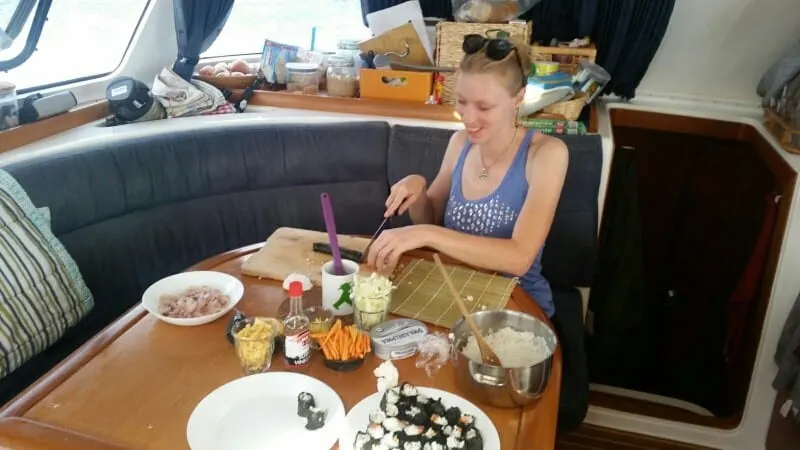
Every single day (in my case, I even went twice!), head to the harbor in order to talk to people asking them how they are, if they need any help, etc.
Do it genuinely, and develop an interest for sailing people and the nautic world.
Everybody I talked to brought me a little bit closer to my final goal: crossing the Atlantic Ocean by boat! The sailing and boating world is very small, and everybody knows each other!
Maybe they will not tell you to sail away with them, but they will let you know that they have a friend on another Canary island looking for crew. Or they will tell you about a new webpage where you could find a boat.
After some time, I exactly knew which dog or which kids belonged to what boat. I knew their destination and when they would sail out. Some invited me for a drink on their boat just out of curiosity for this “boat hitchhiking” thing.
Although at first, I was really stressed that I would not make it or that I would never find a boat, with the time, I learned to enjoy this new world of catamarans, ketches and schooners. I really appreciated their kindness and willingness to help me.
When talking to boat owners, always be respectful, honest, and humble!
This might be self-evident, but these are the values that the oceans have taught the captains over the years. Many adopted them as their own. And after all, never forget that you are asking them to open the doors of their home to you!
I also pinned my CV (focusing on my sailing experience) on the board of the marinas. Make sure that it has a nice picture (in color is a big plus!) and a passionate text that will enthusiasm captains to get to know you.
6. Be ready to spend a lot of money.
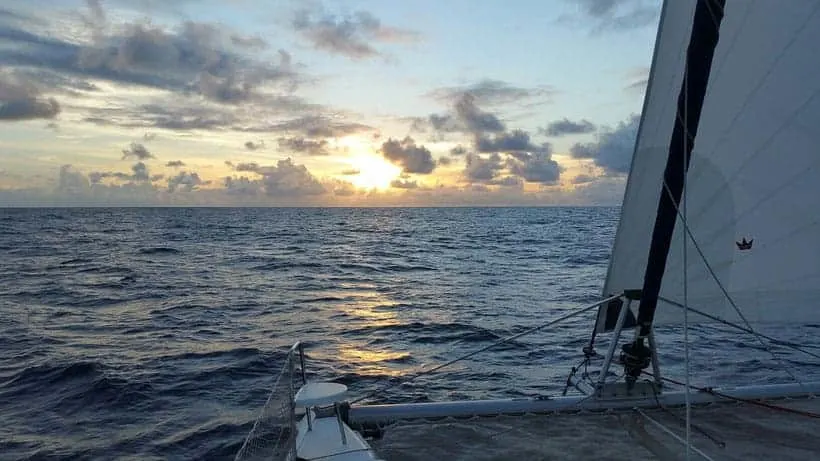
Sailing is an expensive sport!
Small spare parts can easily cost up to 1000 €! Add the fees of docking in the marine (40 € per day) or gasoline, and you will be surprised how much a passion for sailing might cost.
And I am not even talking about the participation fees of the regattas! Just recently, the fees for participating in the ARC or ARC+ (passing via Cape Verde) rose to a few thousand Euros!
This explains why many boat owners or regatta participants started chartering, or charge you in order to do what they love: sail the oceans of this planet. But some exaggerated a bit. I was contacted by ARC participants asking me 2,500-5,000 € to cross the ocean with them! Obviously, that was out of my budget.
Anyway, you should not expect to get a ride for free! Normally, the costs for food and gasoline are shared. To increase your chances, put on your CV that you are willing to participate in the costs of the crossing.
Other costs that you should foresee are:
- a local SIM Card (you will need to make international calls to contact boat owners);
- Hostels (Couchsurfing was not an option since Las Palmas was fully booked due to the ARC);
- Airbnb (get here a 35 € discount!);
- Food;
- Contact making (beers, cookies, CV copies, tape, etc.).
I recommend having a financial reserve since you will never know when exactly you will head out.
Networking with boat people requires time, and you will need to adapt to their departing schedules. This depends again on the weather conditions.
In Tenerife, I was looking for three weeks for a boat! In Cape Verde, it took me almost one month! Luckily, I had enough financial reserves. But, even when I was spending a bit too much, I never thought of giving up!
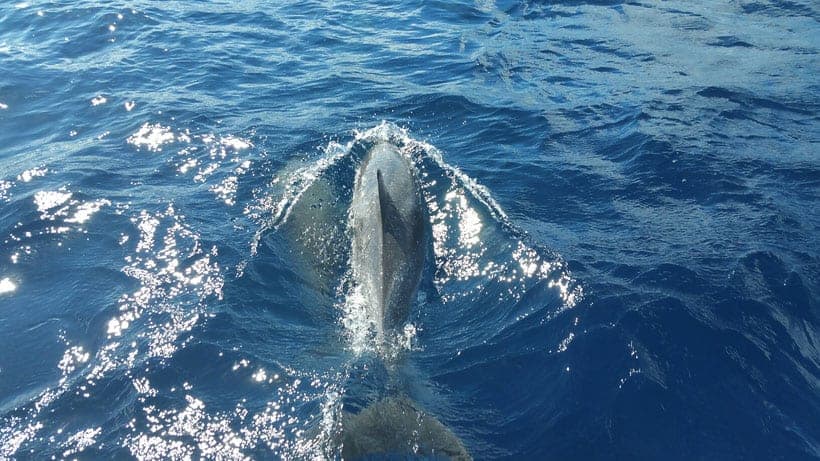
All in all…
- Do anything it might need to get on a boat! And yes, the early bird catches the worm;
- Never lose any opportunity to network, even if it gets tiring after a few days;
- Do not let yourself down! You will hear many “No’s” but those will only bring you closer to the final “Yes, you are welcome on the boat!”;
- Do not overdo it! Some days, I just needed to switch off and have a day at the beach. Or a rhum (or two) in the bar;
- It is a challenge to your resilience! After you finally found your boat, everything that comes after will seem super easy and void!
The main thing that I have learned from the boat hitchhiking experience is that everything will be okay! Somehow, everything will be alright in the end!
